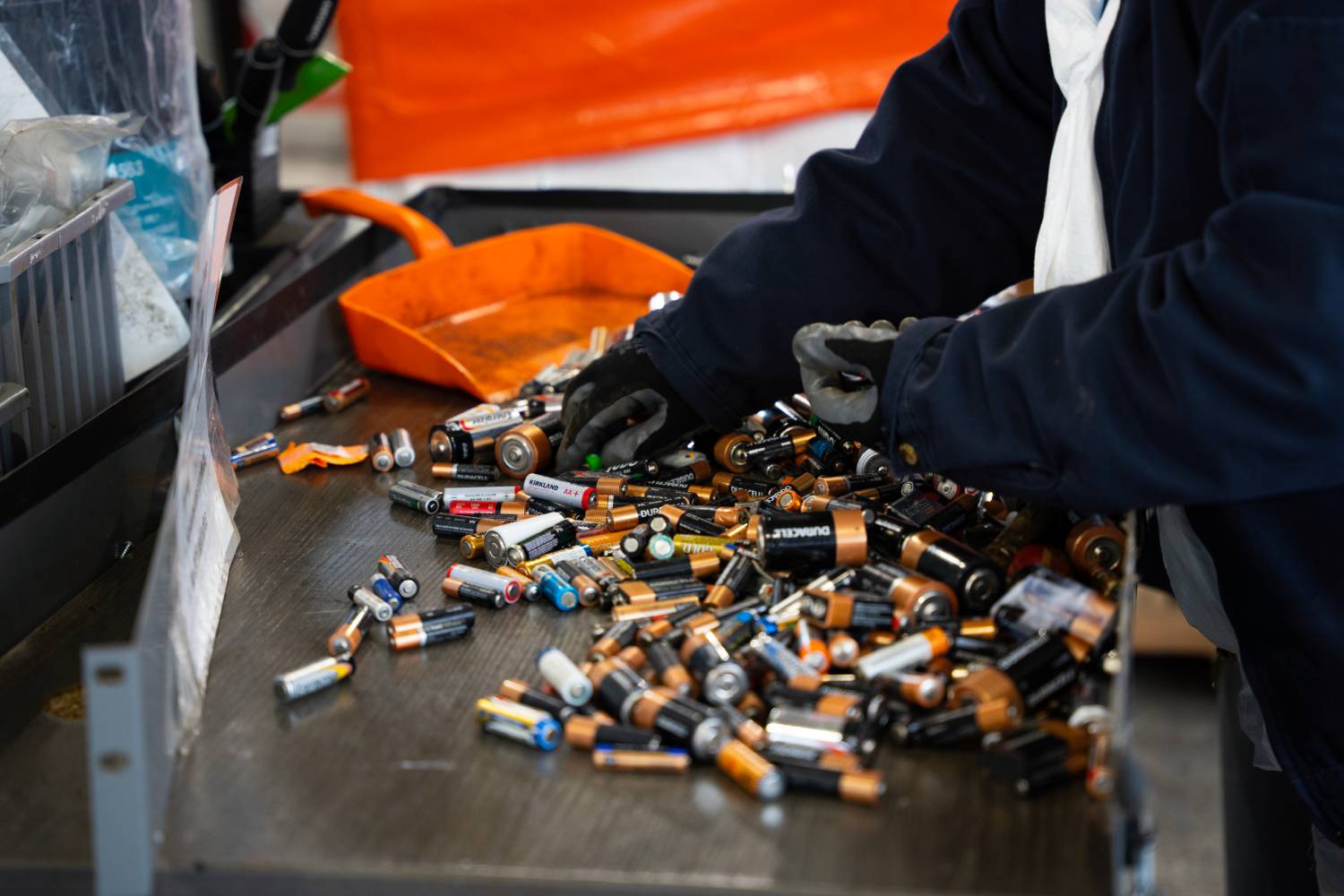King County makes it shockingly easy to keep batteries out of your trash
To protect community safety, batteries and certain electronics products are banned from garbage or recycling containers at homes and businesses. Read on for more information about what’s banned from your garbage and how King County makes it easy to dispose of batteries and electronics properly.

Batteries and electronics with embedded batteries are banned from your garbage. This ban includes TVs, monitors, computers, tablets, e-readers, portable DVD players, and a variety of single-use and rechargeable batteries.
Why It’s Banned from Your Can
Electronics and batteries contain heavy metals and hazardous materials that can have a negative effect on human and environmental health.
These hazardous substances include metals, acids, and flammable components such as mercury, lead, cadmium, and lithium. Exposure to these chemicals can affect the brain, liver, kidneys, the nervous system, and reproductive health.
Because of these risks, it’s important that we all do our part to dispose of batteries and electronics properly to keep everyone safe.
All Aboard for Safe Batteries Disposal
King County Haz Waste facility staff are trained on how to properly handle and dispose of many types of batteries, including the following:
- Alkaline battery
- Button battery
- Removable cellphone battery
- Laptop battery
- Lead-acid battery
- Rechargeable battery
- Car battery
Before you go to your hazardous waste facility, prepare ahead of time by individually packaging or putting tape on the ends of lithium or rechargeable batteries to prevent a fire hazard.
Here are some other things to keep in mind:
- There is a five-item limit per visit on lead acid auto or marine batteries. Electric vehicle batteries are not accepted.
- A 25-pound maximum applies for a single non-auto or marine battery (lithium, other rechargeables or alkaline).
- A 50-pound total weight limit applies for any combination of non-auto batteries per visit.
Visit the Haz Waste Program website for more information about battery disposal and hazardous waste facility drop off locations.
It’s Electric!
Whenever possible, it’s best to reuse, repair, and donate unwanted electronics through local thrift stores, electronic repair stores, and online marketplaces.
The E-Cycle Washington program has a variety of convenient collection locations across the state where you can safely recycle electronics like computers, monitors, printers, TVs, cell phones, and other items.
The Call2Recycle program offers convenient drop-off locations for batteries and additional battery disposal options.
 Translate
Translate